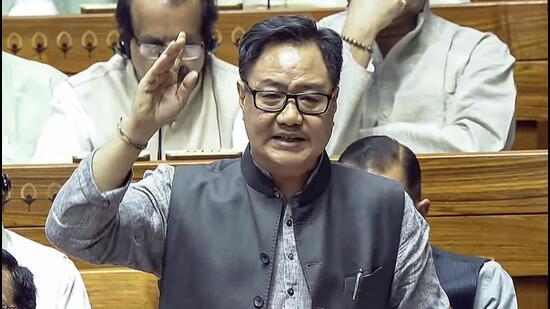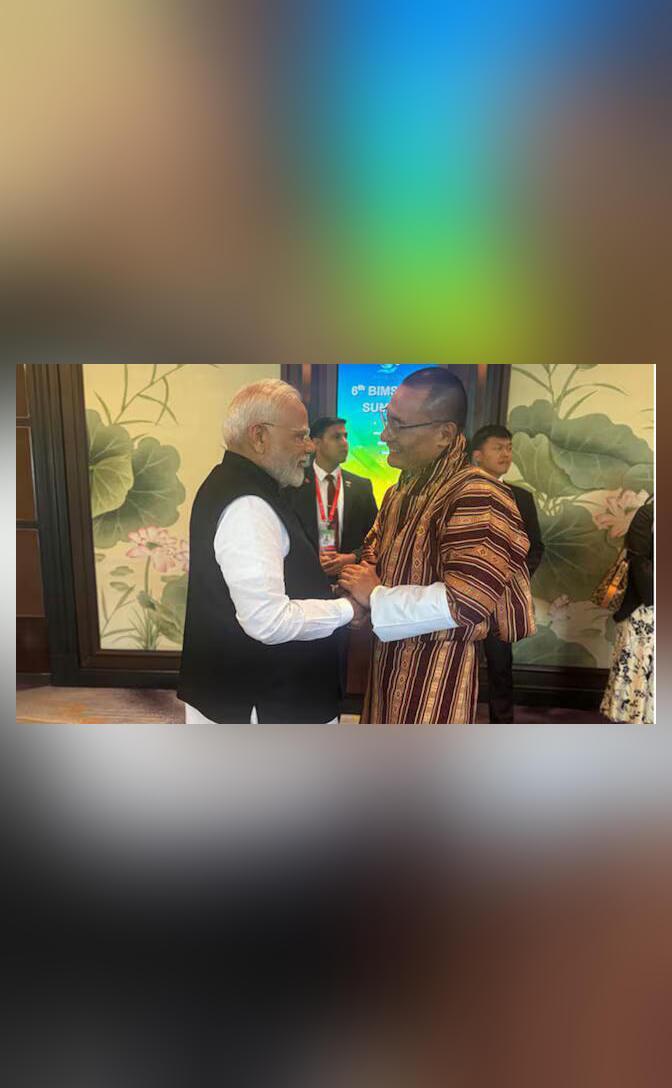
Opposition Creates Confusion & Leaves House: Rijiju in Rajya Sabha
The recent session of the Rajya Sabha witnessed a heated debate on the Waqf (Amendment) Bill, with Union Minister Kiren Rijiju criticizing senior members of the opposition for creating confusion and raising issues without staying back to listen to the replies. The minister’s remarks came as a response to the opposition’s allegations and counter-arguments put forth during the debate.
The Waqf (Amendment) Bill aims to replace the Waqf Act, 1995, and make several changes to the existing law governing the administration of Waqf properties. The bill was introduced in the Rajya Sabha by Minister of Minority Affairs Mukhtar Abbas Naqvi, who argued that the amendments were necessary to streamline the functioning of Waqf bodies and ensure transparency in their administration.
However, the opposition parties, including the Congress, the Left, and the Samajwadi Party, raised several objections to the bill, questioning the government’s intentions and the impact of the amendments on the functioning of Waqf bodies. Senior Congress leader Kapil Sibal, who was participating in the debate, compared the properties of Waqf bodies with those of other religious bodies, claiming that the government’s move was an attempt to interfere with the autonomy of these bodies.
In response to Sibal’s remarks, Rijiju accused him of creating confusion and not staying back to listen to the replies. He argued that the opposition was raising issues without having a clear understanding of the bill and its implications. “Some members create confusion, raise issues, and then leave the House without staying back to listen to the replies,” Rijiju said.
Rijiju’s remarks were seen as a direct attack on Sibal, who has been a vocal critic of the government’s policies on several occasions. Sibal, however, refused to back down, accusing the government of trying to suppress dissenting voices and gag the opposition. “The government is trying to muzzle our voices and gag our criticisms,” Sibal said.
The debate on the Waqf (Amendment) Bill highlights the entrenched divisions between the ruling BJP and the opposition parties in the Rajya Sabha. The opposition parties, who are in a minority in the House, are determined to oppose the government’s policies, even if it means creating confusion and disrupting the functioning of the House.
The BJP, on the other hand, is keen to push through its legislative agenda, including the Waqf (Amendment) Bill, despite opposition from the other parties. Rijiju’s remarks reflect the government’s frustration with the opposition’s tactics, which it sees as an attempt to obstruct the functioning of the House.
The Waqf (Amendment) Bill is not the first legislation to be opposed by the opposition parties in the Rajya Sabha. In recent years, the House has seen several instances of opposition parties disrupting the functioning of the House and stalling the passage of key bills. The government has accused the opposition parties of playing politics and trying to score brownie points, while the opposition has argued that it is their duty to hold the government accountable for its policies.
The debate on the Waqf (Amendment) Bill also highlights the need for greater understanding and cooperation between the ruling party and the opposition parties in the Rajya Sabha. The House is a forum where diverse opinions and perspectives are exchanged, and where the government is accountable to the people. When the opposition creates confusion and disrupts the functioning of the House, it hinders the ability of the government to carry out its duties and serves only to further polarize the political landscape.
In conclusion, the debate on the Waqf (Amendment) Bill in the Rajya Sabha highlights the entrenched divisions between the ruling BJP and the opposition parties. While the government is keen to push through its legislative agenda, the opposition parties are determined to oppose its policies and create confusion in the House. The need for greater understanding and cooperation between the two sides is essential for the effective functioning of the Rajya Sabha and the well-being of the nation.






